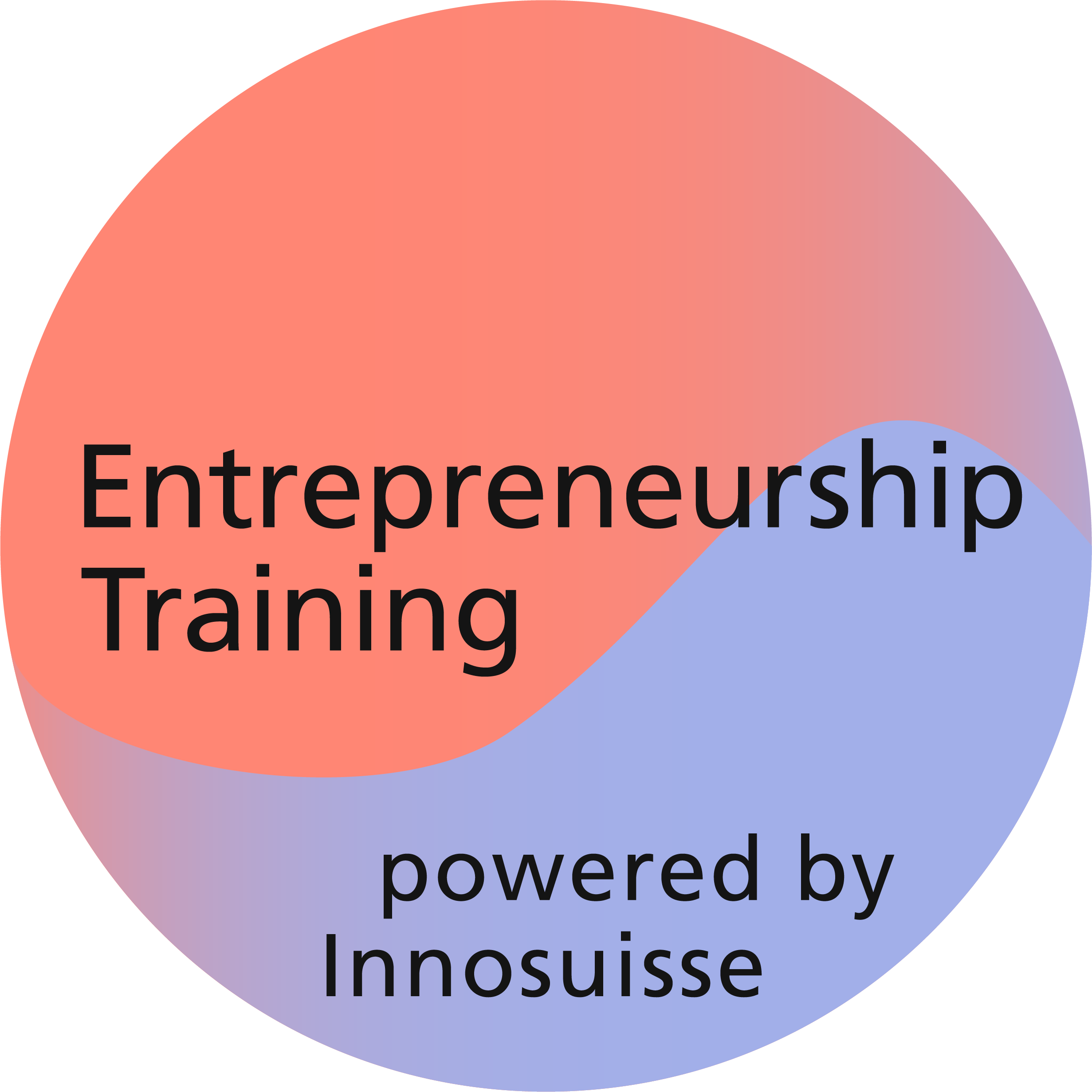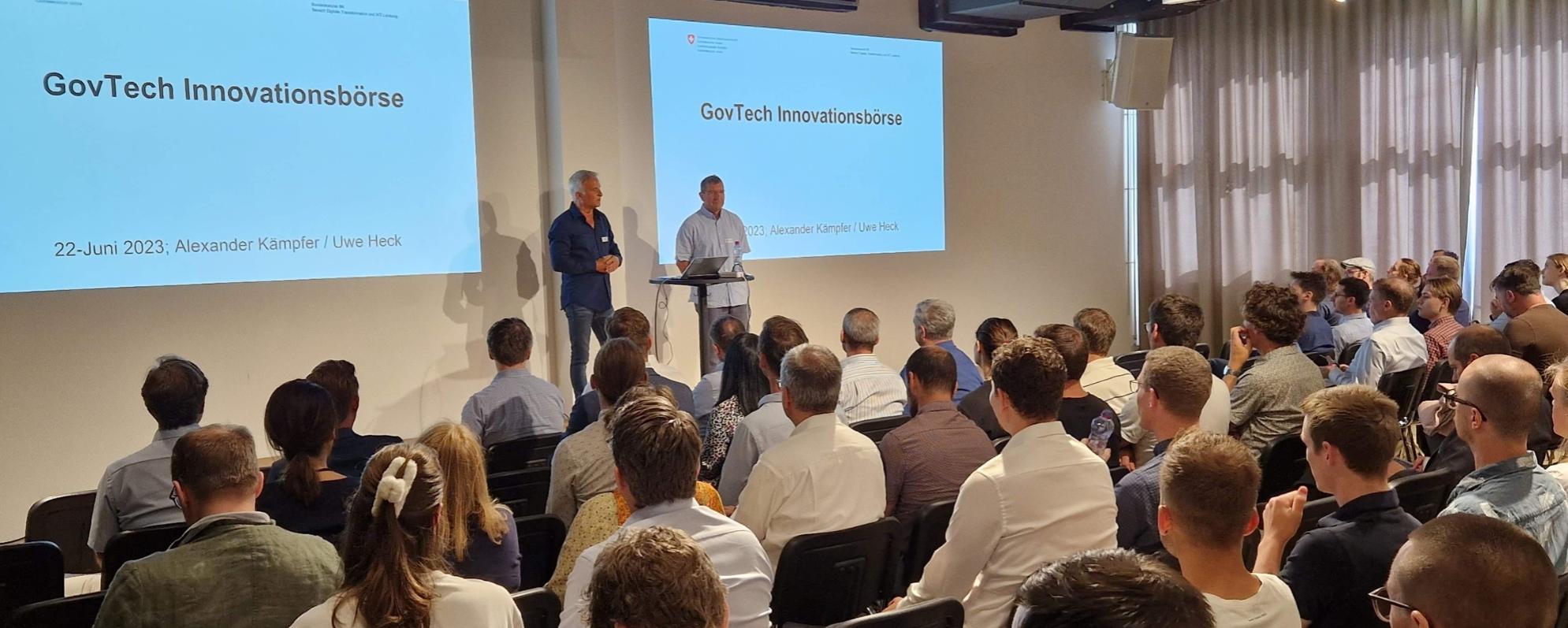An entrepreneur, an investor, and a lawyer participate in an interview series… What sounds like the setup for a joke is serious business: In a new series, we present three different perspectives on convertible loans, term sheets, and shareholders’ agreements so that you can gain new insights to negotiate with more confidence. We continue our overview of convertible loans with investor insights from Caroline Gueissaz—the general manager of Business Angels Switzerland, an association that helps startups realize their potential—and Michal Bartos, an angel investor.
After the entrepreneur’s and lawyer’s perspectives, we conclude the insights on convertible loans with two investors: Caroline Gueissaz is the general manager of Business Angels Switzerland (BAS) and runs an association of private individuals who invest time and money in small, newly founded companies with innovative projects. BAS includes about 100 business angels. Each year, the organization supports startups by managing a deal flow of approximately 360 projects, organizing 20 networking events, and making 12 to 18 investments.Michal Bartos has been an angel investor and a passionate supporter of the Swiss startup ecosystem for seven years. Among other assignments, he is a jury member of Venture Kick and >>venture>>, acts as an expert for Horizon Europe and BaselArea, and sits on various boards.

Michal, what is investors’ general attitude toward convertible loans versus equity financing?
Michal: The key motivation of founders to go for a convertible loan is to avoid dilution by “giving away” shares at a low price. Conversely, investors do want to acquire shares at a price that fairly reflects their risk when a venture often does not have a validated proof of concept, a patent, let alone an MVP, and even less so, a proof of market. Generally, the interests of founders and investors are congruent. In this case, the interests are conflicting: If I acquired shares at a fair price today, I would get much more shares for a given amount X than I will eventually get at conversion in 12 or 18 months. Moreover, lenders don’t have the same rights as shareholders.
Why would an investor be against using a convertible loan as a financing instrument?
Caroline: A loan does not give the investor the same rights as a shareholder while not giving him any more security.
Michal: If I may add: As compared to a straight capital increase, with a convertible loan, investors are also worse off in terms of the magnitude of their future shareholding, as they convert at a higher price than they would pay for the shares today.
In which situation is a convertible loan the most appropriate financing instrument?
Caroline: There are two important reasons. The first reason is when time is pressing to get money rather than spending time negotiating all terms of the agreement. The other reason is when there is no agreement about the current value of the company, but there can be an agreement with “if’s” in the future (e.g., a milestone achieved, other investors agreeing on the valuation, etc.)
Michal: Regarding the first situation mentioned by Caroline, when time is pressing: If the purpose of a loan is to bridge a period of three to six months—for example, until an ongoing capital increase round is concluded or before a grant or prize money have been credited on the bank account—then a loan is indeed the way to go.
What are the disadvantages or risks of convertible loans founders must be aware of?
Caroline: The terms of the loan include some assumptions for the future, which can represent a risk for the entrepreneur if they do not happen as planned.
Michal: The only tangible risk for founders that I can think of: If the company has to be liquidated, debt has priority over equity; hence, lenders are in theory better off than shareholders. Other than that, if the terms of the loan agreement are fair, then, from the founders’ perspective, I can’t think of any disadvantages or risks versus a straight capital increase.
Why do investors ask for a valuation cap at conversion?
Caroline: Convertible loans are a temporary solution when a bigger round is expected or when no agreement can be reached about the valuation, in which case milestones are defined—with two valuations in case the milestones are reached or not.
Michal: Discount at conversion and the valuation cap aim to reduce the disadvantages of a convertible loan versus an equity round and, thus, help to increase lenders’ appetite.
A key element of a term sheet is the presence of a discount rate. What do you think is a fair discount rate at conversion?
Caroline: The fairness of the discount rate depends on the specific situation and the level of risk involved. There can also be a discount rate variation depending on the duration before conversion, for example, 0% at six months, 10% at one year, 20% at 18 months, etc.
To conclude, what are your recommendations to other investors?
Michal: First, except in situations where a short period of illiquidity needs to be bridged, ask yourself if a convertible loan makes sense at all. Second, if you go for it, insist on a valuation cap, a discount at conversion, and rights that guarantee the lenders minimal involvement in strategic decisions. Ideally, lenders’ representatives shall have a board seat or, at least, an observer seat.
To learn more about different financing options and get the possibility to pitch in front of investors, sign up for the Innosuisse Start-up Training.
Related stories

How to create better shareholders’ agreements—an entrepreneur’s perspective
An entrepreneur, an investor, and a lawyer participate in an interview series… What sounds like the setup for a joke is serious business: In a new series, we pr...

How to create better shareholders’ agreements—a lawyer’s perspective
An entrepreneur, an investor, and a lawyer participate in an interview series… What sounds like the setup for a joke is serious business: In a new series, we pr...

How to create better shareholders’ agreements—an investor’s perspective
An entrepreneur, an investor, and a lawyer participate in an interview series… What sounds like the setup for a joke is serious business: In a new series, we pr...

How to better prepare term sheets—an investor’s perspective
An entrepreneur, an investor, and a lawyer participate in an interview series… What sounds like the setup for a joke is serious business: In a new series, we pr...

How to better prepare term sheets—an entrepreneur’s perspective
An entrepreneur, an investor, and a lawyer participate in an interview series… What sounds like the setup for a joke is serious business: In a new series, we pr...

How to better prepare term sheets—a lawyer’s perspective
An entrepreneur, an investor, and a lawyer participate in an interview series… What sounds like the setup for a joke is serious business: In a new series, we pr...

How to better negotiate convertible loans—a lawyer’s perspective
An entrepreneur, an investor, and a lawyer participate in an interview series… What sounds like the setup for a joke is serious business: In a new series, we pr...

How to better negotiate convertible loans—an entrepreneur’s perspective
An entrepreneur, an investor, and a lawyer participate in an interview series… What sounds like the setup for a joke is serious business: In a new series, we pr...

